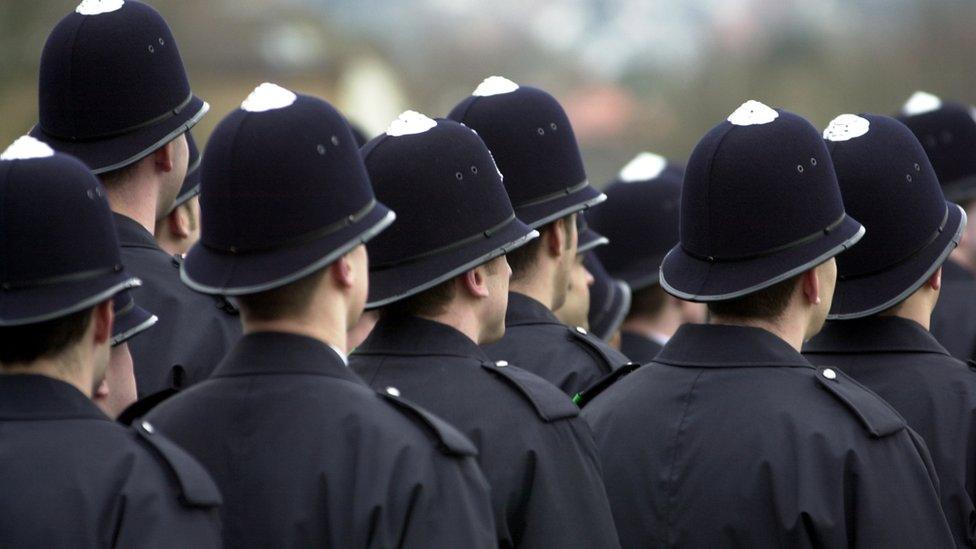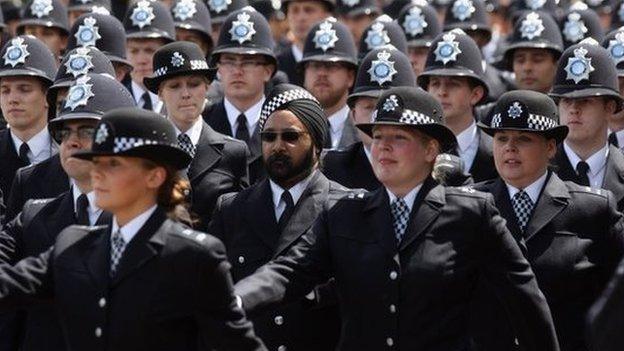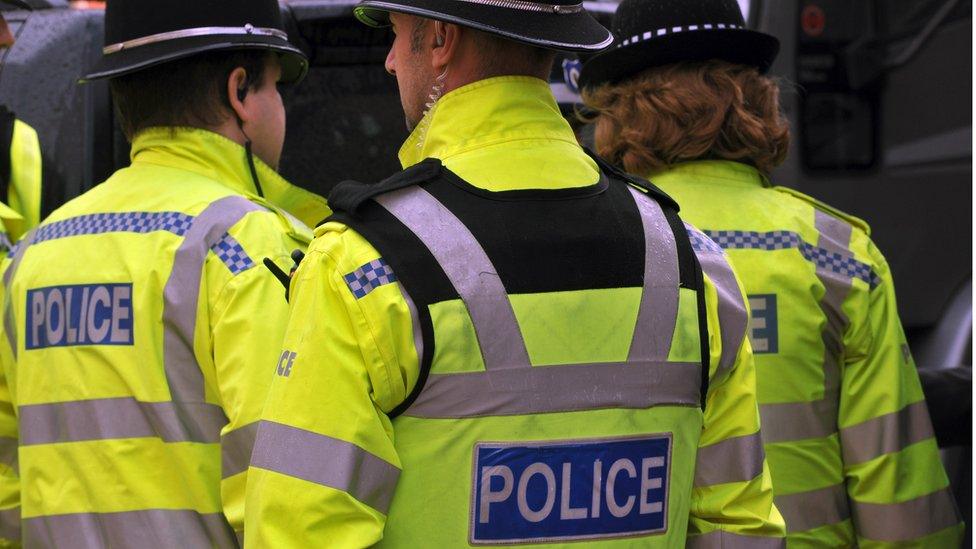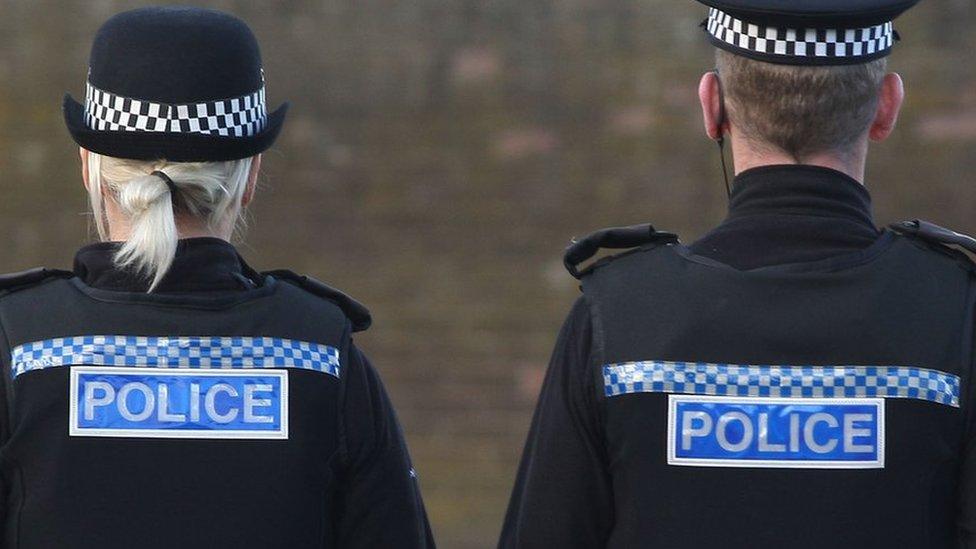All officers 'should have degrees', says College of Policing
- Published
- comments

All new police officers in England and Wales could require a degree in future, under plans proposed by the College of Policing.
Currently there is no service-wide minimum qualification for new police officers, but the college says the job is now of "degree-level complexity".
It is consulting on the plans, which if approved could run as a pilot in 2017 and be fully adopted by 2019.
But the Police Federation said it fundamentally disagreed with the idea.
The federation, which represents rank-and-file police officers, said the plans would exclude hard-to-reach groups and those unable to afford university fees.
BBC home affairs correspondent Danny Shaw said the plans - if adopted - would herald the "biggest change to policing in recent times".
A 'lack of parity'
Currently, recruitment requirements vary from force to force, with some insisting applicants have A-levels or a certificate in policing and others demanding experience in a policing role.
The College of Policing, which is responsible for setting standards of ethics and training for the police service, says fewer than a third of officers have a degree.

Analysis by BBC home affairs correspondent, Danny Shaw
This issue goes to the heart of what it is to be a police officer, which is why, out of all the recent reforms to policing, it is the most potentially explosive.
Over the years, many thousands of people with few or no qualifications have served in the police - with distinction. They have attributes you won't find on a university course: commitment, bravery, common-sense.
And yet, there's a belief among some police leaders, including the College of Policing, that the multi-skilled officer of the future - tackling cyber-crime one day, dealing with child sexual exploitation the next - needs something that only a degree can bring.
There will be fierce resistance - just as there was to direct entry to the service and fast-tracking. But my prediction is that - perhaps over a longer time period than the college envisages - it will happen, just as those other controversial changes eventually did.

Chief Constable Alex Marshall, chief executive of the college, said the role of a police officer was as complicated as that of a social worker or a nurse - professions that only accept graduates.
Under the proposals, new police applicants would need to complete either a degree in practical policing or a conversion course after graduating in another subject.
Dr Sam Peach, who has put together the plan for the college, said: "The majority of other professions have graduate entry in the UK.
"There's a lack of parity with other professions and because of that the police is not recognised as a legitimate profession.
"We are looking to have degree-level qualifications for constable and masters for superintendent."
- Published30 June 2015

- Published4 November 2015
- Published27 October 2015

- Published7 September 2015
